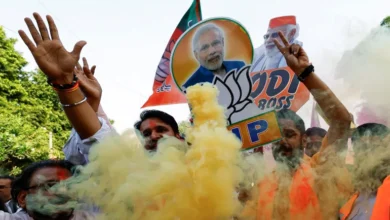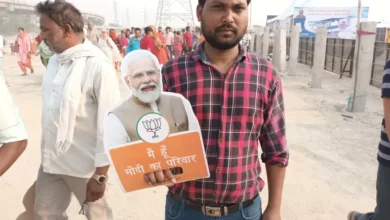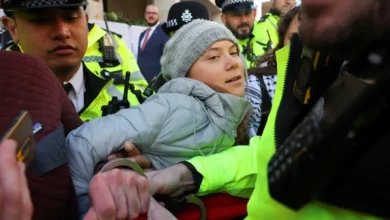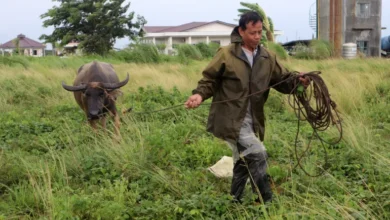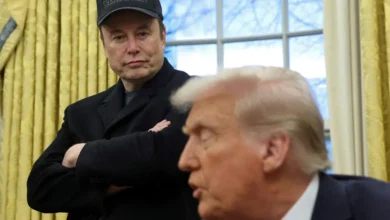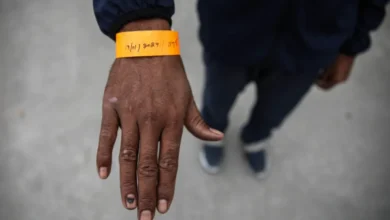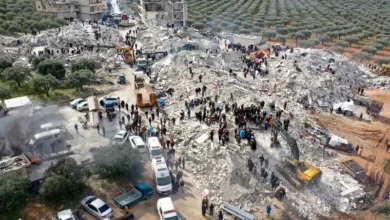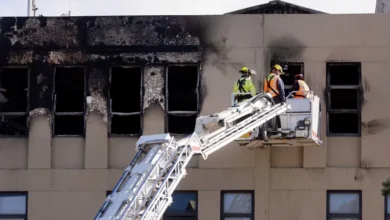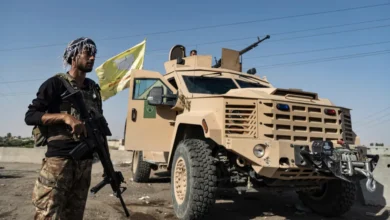After a year of war in Sudan, what is the situation now?
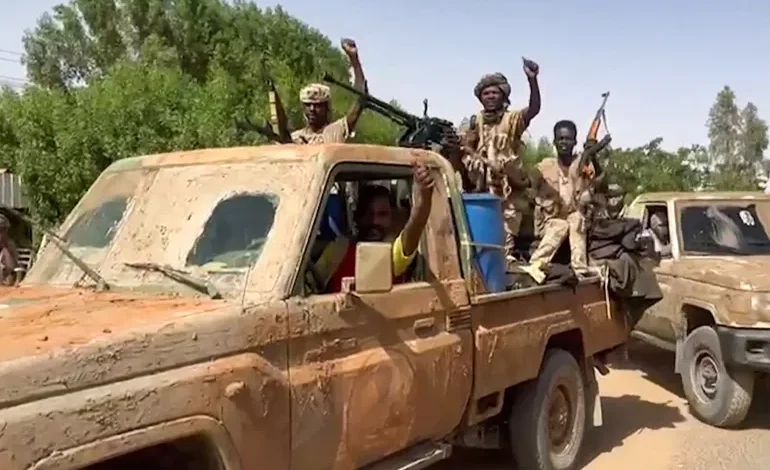
It has been nearly one year since war broke out in Sudan, causing a devastating humanitarian crisis and bringing long-existing political and ethnic tensions into sharp focus.
The two warring parties, the Sudanese Armed Forces (SAF) and paramilitary Rapid Support Forces (RSF), have continued a longstanding struggle for power. Over the past year, violent clashes have killed nearly 16,000 people and displaced millions.
Thousands of desperate people are still fleeing the country daily “as if the emergency had started yesterday”, the United Nations reported on Tuesday this week.
Diplomatic efforts have failed to put an end to the crisis, which experts have said was partially triggered by an internationally backed plan to merge the RSF into the army.
Here’s what you need to know about Sudan’s war, the peacemaking efforts which have been undertaken since it broke out and what the humanitarian situation is now.
Why is there a war in Sudan?
The war in Sudan broke out on April 15, 2023, when a power struggle between the army chief, Abdel Fattah al-Burhan, and RSF commander Mohamed Hamdan “Hemedti” Dagalo reached a tipping point.
After Sudan’s ruler for nearly 30 years, President Omar al-Bashir, was toppled by a popular uprising in 2019, a fragile transition to civilian-led democracy was blown apart when al-Burhan and Hemedti staged a coup in 2021.The army and the RSF initially shared power but an ensuing power struggle between the two was exacerbated by an internationally backed Framework Agreement in December 2022. This attempted to integrate the RSF into the army as part of a wider reform of the security sector and the transition to democracy.
While Western countries pressured the two sides to reach a deal quickly, promising aid and debt relief as incentives, each side feared ceding too much control to the other in a new political order.
“Most of all … the two forces feared being left weaker than the other.”
Tensions between the two military forces reached boiling point in Khartoum on April 15 last year, when both forces sent armoured vehicles into the streets and they opened fire on each other.
Who are the two opposing sides in this war?
The Sudanese Armed Forces (SAF) is Sudan’s national army, with an estimated 300,000 soldiers. Its military commander, General al-Burhan was a career soldier who climbed the ranks under President al-Bashir.
The RSF, on the other side, has approximately 100,000 well-equipped soldiers positioned across the capital, Khartoum, and the Darfur region, the group’s traditional stronghold.
The RSF evolved from Popular Defence Forces armed groups. During the Darfur conflict in the 2000s, government-backed Popular Defence Force groups (called Janjaweed by rebels) were accused of war crimes when al-Bashir’s government used them to help the army put down a rebellion.
In 2013, the RSF emerged out of Popular Defence Forces members and became an independent force under Hemedti, who hails from Darfur’s camel-herding Arab Rizeigat people and has largely been in hiding since war broke out in April. This year, he visited leaders of other African states including Uganda, a move which was viewed by experts as an attempt to gain legitimacy as a political actor.
“Hemedti desperately needs people to feel that the RSF is a governing force. I think this is why Hemedti went to meet heads of state,” said Kholood Khair, a Sudan expert and founding director of the think tank Confluence Advisory, which is based in Khartoum.
The RSF’s legitimacy as a ruling force was also seen as being supported by European policies such as the 2017 Khartoum Process, which designated and funded the group to act as border guards to stem African migration to Europe.
While the RSF currently holds the military upper hand in active combat zones, reports of their troops carrying out extrajudicial killings, being responsible for sexual violence and of looting aid, have severely undermined the group’s legitimacy among the Sudanese people.
“I think so many Sudanese … are never going to be comfortable with the RSF governing them,” said Horner, who has worked with various think tanks such as the International Crisis Group, based in Belgium.
“[The RSF’s] atrocities and their hardcore cruelty … is probably their single biggest obstacle and makes the prospect of them governing the country far more difficult,” Horner said.
Are any other groups involved in the war?
Several other groups have also taken up arms.
“Many of the fighters battling the RSF are highly motivated [hardline Muslim] forces seeking to reclaim Sudan. That ideological motivation counts for a lot next to those who are there for pay, as many RSF fighters are,” Horner told Al Jazeera.
Some of the armed groups are also loyal to the SAF.
